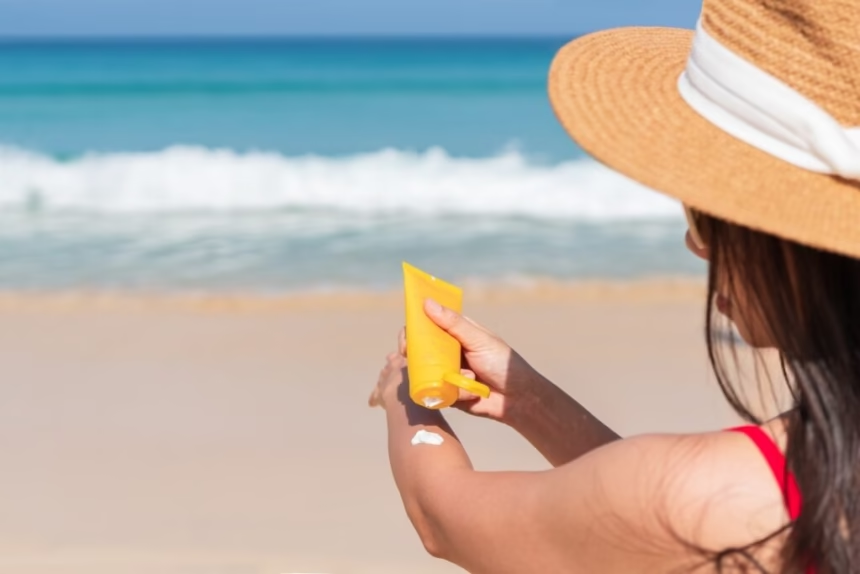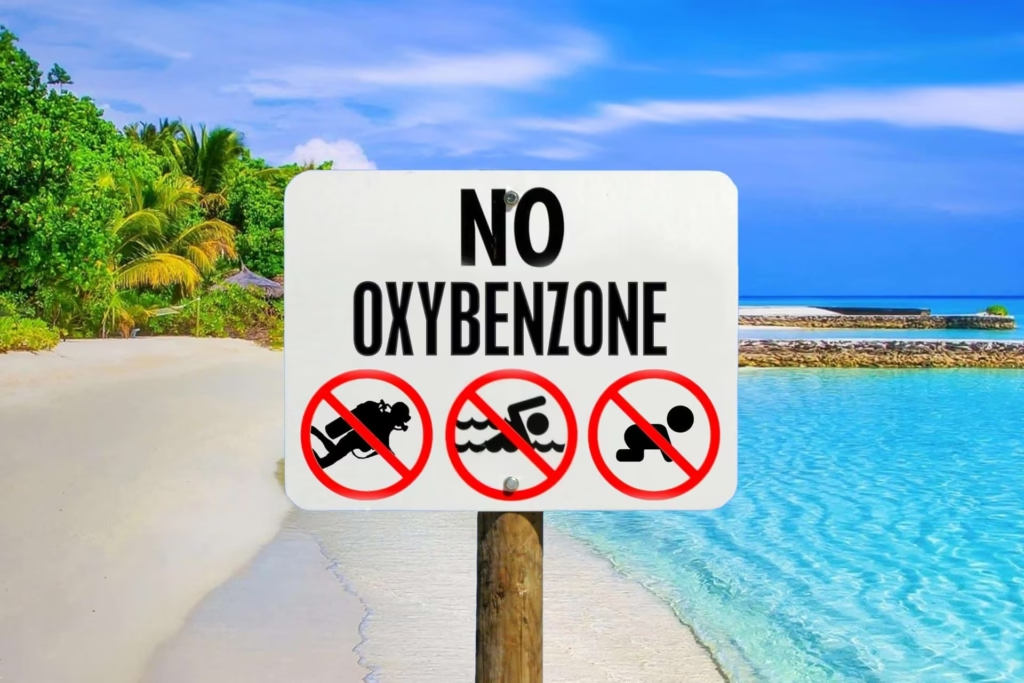PHUKET— With crowds returning to Thailand’s clear seas, officials are tightening the sunscreen rules in national marine parks. The Department of National Parks, Wildlife and Plant Conservation has stepped up checks on a long-standing sunscreen ban, warning visitors that using the wrong lotion can cost up to 100,000 baht, about 3,000 USD. A carefree beach day could turn costly in seconds.
The renewed push, announced on 16 October by DNP Director-General Atthaphol Charoenchansa, targets UV filters that damage coral reefs. He said these chemicals act like toxins in the water, blocking coral larvae from developing, disrupting reproduction, and speeding up bleaching. Offenders can be prosecuted under Sections 20 and 47 of the National Park Act 2019, and rangers can inspect sunscreen at park gates and on beaches.
Four ingredients sit at the centre of the ban. These are widely used in popular sunscreens for their UV protection, but studies link them to coral harm:
- Oxybenzone (Benzophenone-3, BP-3): Linked to coral DNA damage and bleaching. It can build up in reef tissues and behave like oestrogen, which stresses marine life.
- Octinoxate (Ethylhexyl Methoxycinnamate): Breaks down into by-products that deform coral skeletons and slow growth, washing off swimmers into the sea.
- 4-Methylbenzylidene Camphor (4MBC): Bioaccumulates in fish and disrupts hormones. It worsens bleaching by reducing corals’ ability to photosynthesise.
- Butylparaben: A preservative that can promote bacterial overgrowth on reefs, adding to heat stress.
These compounds may stop sunburn on skin, but even tiny amounts in the sea can harm reefs. Research from the University of Hawaii and others has flagged oxybenzone as a driver of bleaching, stripping colour from once-bright coral gardens.
Thailand first introduced the ban in August 2021, as global concern over reef decline grew. With tourism surging again in 2024, topping 35 million visitors, enforcement has tightened at key sites such as Mu Ko Ang Thong, the Similan and Surin Islands, and Phi Phi Marine Park.
Marine biologist Dr Supaporn Suwanarak, an adviser to the DNP, reports a sharp fall in coral cover at some Andaman locations in the past decade. Visitors travel for the reefs, she said, but without action, there will be little left to see.

Screening of Sunscreen Products
Parks are adding multilingual signs, training eco-rangers to conduct spot checks, and working with boat operators to screen sunscreen products before trips. A diver at Koh Lanta shared that a guide spotted octinoxate on a label, swapped the tube for a reef-safe option, and saved a fine, and possibly the reef. Some observers worry about uneven enforcement on remote islands compared with Phuket and other hubs.
Officials are promoting safer choices. Travellers are urged to pick products labelled Reef Safe or Reef Friendly, usually mineral sunscreens with zinc oxide or titanium dioxide.
Non-nano minerals sit on the skin rather than absorb, which reduces runoff. Reef Repair, a Thai-made brand with natural oils and beeswax, is common in hotel shops and supermarkets. Charoenchansa says these products work well and should be paired with rash vests, hats, and time in the water when the sun is lower.
The policy ties into the national Reduce, Refrain, Rescue programme, a joint effort by the DNP and the Department of Marine and Coastal Resources. It targets anchor damage, plastic waste, and careless contact with coral.

Coral Collage Project
Linked rules include no-touch measures and buoyed mooring zones. Sustainable tourism is a matter of survival, said Pimchanok Sutthakorn from the Tourism Authority of Thailand. The TAT has launched a Coral Collage Program and is adding reef-safe kits to welcome packs at airports, and says protecting coral could secure about 1.2 billion USD in reef-related income each year.
Thailand is in line with places like Hawaii, Palau, and Mexico’s Riviera Maya, where bans have shown benefits, including lower bleaching in restricted areas. The bigger picture remains tough. Warmer seas and acidification amplify chemical stress, and 2010’s El Niño bleached most shallow reefs in Thailand. Sunscreen is a straightforward fix, said Dr Suwanarak, but global cuts in emissions are needed too.
For travellers, the guidance is simple. Check labels, use apps such as Yuka to scan ingredients, and buy compliant products from local shops. Prices may be slightly higher, but the reward is worth it, with reefs alive with clownfish, butterflyfish, and sea turtles.
As one snorkeller in Phuket put it, paying a little more for lotion beats a fine, and helps protect the magic below the surface.
Thailand’s stance is clear: protect the reefs, one bottle at a time. With high season on the horizon, the hope is that visitors will play their part. The reefs cannot speak, but their future depends on every choice made at the shoreline.















